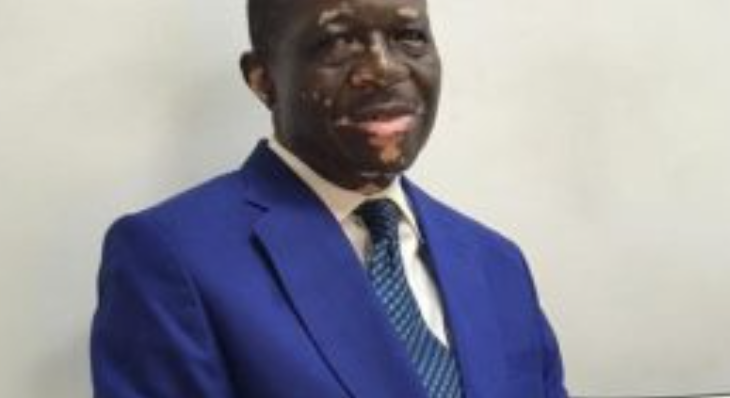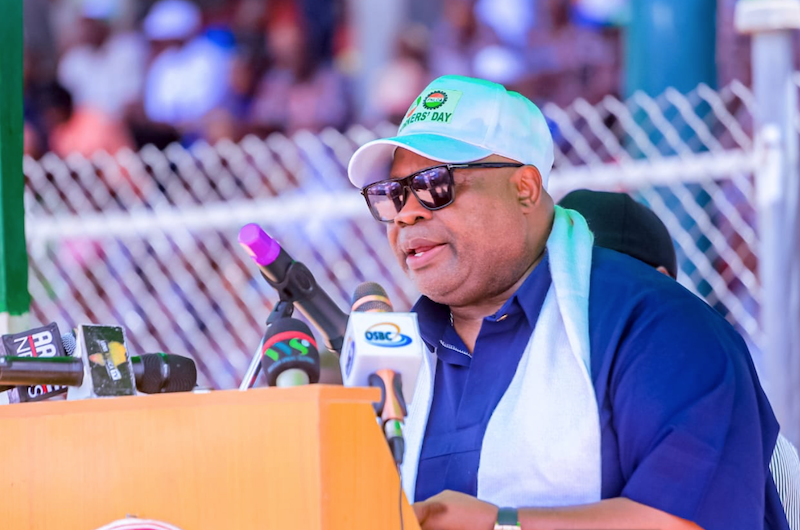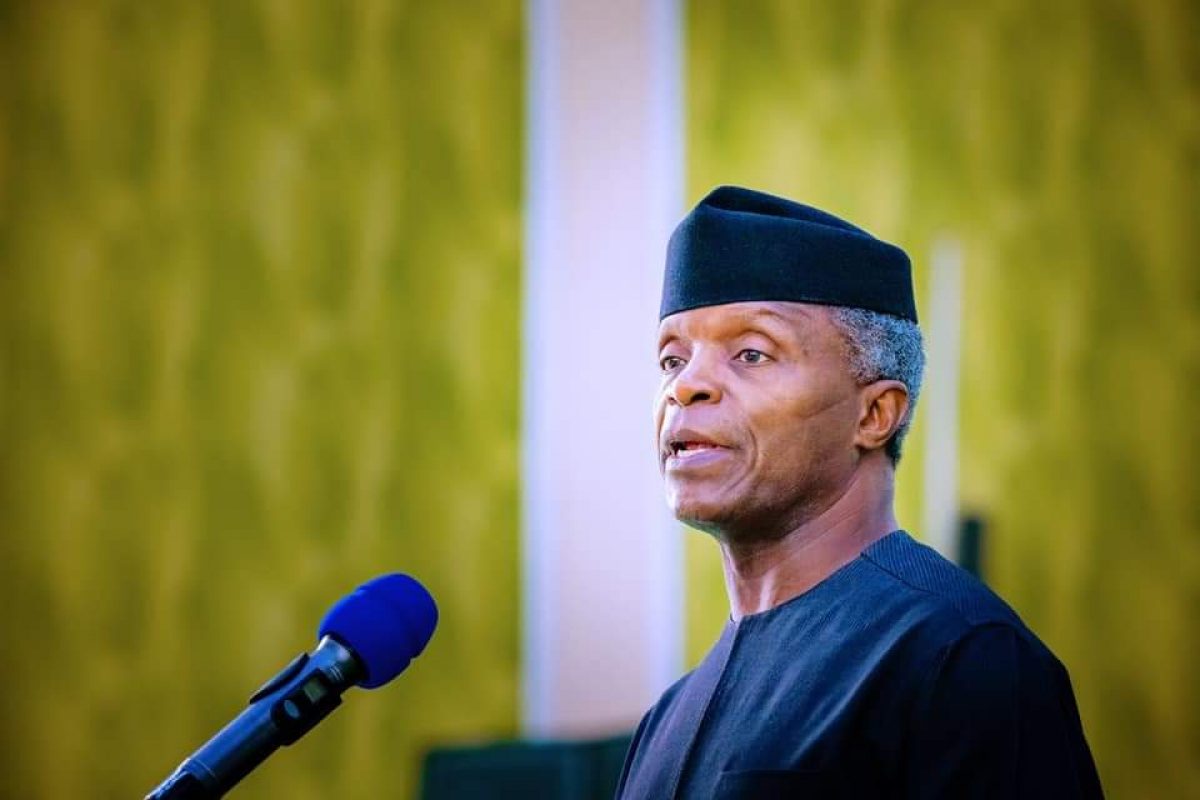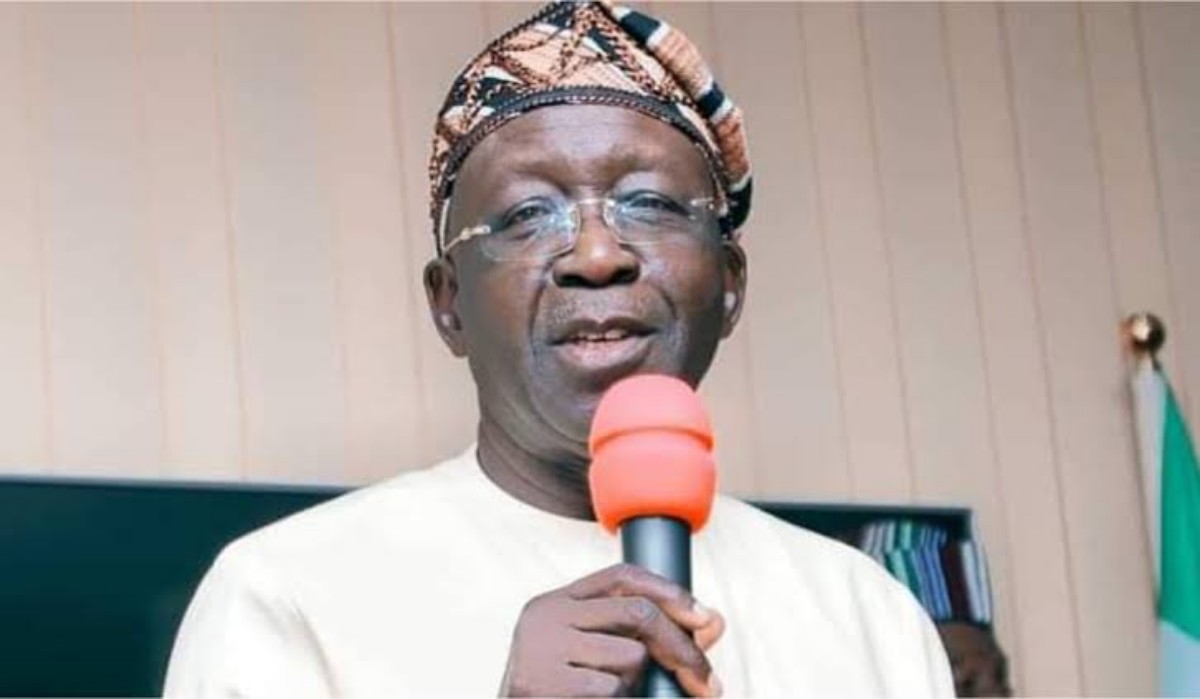JUST AS IT WAS YESTERDAY SO IT IS TODAY – THE WAY THE NIGERIAN POLITICAL ELITE LEADERSHIP CRUMBLES.
I did promise on air a week ago of publishing the jumbo severance packages the out-going governors created for themselves by law, with full collaboration of their States Houses of Assembly. I fully fulfilled that promise last week.
In today’s exercise, I am going retrospectively into the beginning of this Fourth Republic and to show how political leaders of then did it. It is then that you can understand that this badge of “incorruptible Governors – s club of Saints”, so to call them, inherited from their forefathers. So, as it was in the beginning [from 1999], so it is today.
The current leaders inherited much of their rotten character from their predecessors. Who shall reform this vicious circle of corrupt leadership in Nigeria therefore? Only times shall tell!
From jumbo pay to jumbo pensions.
Many Nigerians have accepted their ‘fate’ when it comes to the ostentatious lifestyle that many public office holders – elected or otherwise – lead. Whether they are lawmakers that swim in rivers of jumbo pay, or the President and governors that loom too large on public treasures, many government officials have become gods onto themselves.
While they spend public funds the way they like when in office, the story is now taking another dimension. It is now becoming a norm for them to orchestrate for themselves a pension scheme that, many Nigerians fear, will make the state to be in servitude to them forever.
THE CASE OF GOVERNOR GODSWILL AKPABIO IN AKWA IBOM
A pension bill the Akwa Ibom State Governor, Godswill Akpabio, recently signed into law is a classic example. The provisions of the bill are so enticing and, at the same time, wild, in the thinking of many people that it has sparked widespread outrage. The bill, as passed, provides a former governor a pension for life at a rate equivalent to the salary of a serving governor.
It also empowers a former governor to employ a cook, chauffeur and security guards at a sum up to N5m per month and N2.5m for the deputy.
According to the bill, the former governor will also be entitled to free medical services for his person and spouse at a sum not exceeding N100m per annum and N50m for a former deputy governor. The bill also provides for the former governor a befitting accommodation not below a five-bed room maisonette in either Abuja or Akwa Ibom State.
Besides, it awards a yearly accommodation allowance of 300 per cent of annual basic salary to the deputy governor while the former governor would also receive a severance gratuity of 300 per cent of his annual basic salary as of the time he leaves office. The law adds that the state will bear the cost of funeral of ex-governors while condolence allowance – equivalent to the salary – will be paid to his next of kin.
Perhaps to be a little fair to Akpabio, whose state is one of the richest states, but arguably with one of the highest number of unemployed in the country, he is. But the one he recently approved has been declared as the most despicable in the country.
Akpabio’s predecessor, Obong Victor Attah, had, a year after he came into office, initiated such an executive pension bill now ‘standardised’by his successor.
THE CASE OF GOVERNOR BUKOLA SARAKI IN KWARA STATE
Also, shortly before leaving office as the Governor of Kwara State, Sen. Bukola Saraki sent a bill to the State House of Assembly on how he would like to be treated after leaving office.
The bill, which was later passed into law, states that any person who held office as an elected governor or deputy governor shall be entitled to the payment of pension at the rate equivalent to the annual basic salary of the incumbent governor or deputy governor and get other benefits as provided by the revenue mobilisation allocation and fiscal commission.
It also adds that the governor and his deputy shall, upon the successful completion of his or her term, be entitled to a grant of pension for life by the state unless he is impeached. Other provisions are that the sum payable as pension shall be charged upon the consolidated revenue fund of the state and that the total emolument of the public office holder shall include salary, allowance and fringe benefits as contained in the law.
While the law provides that the state shall offer one residential house each for the former governor and deputy at any location of their choice in state, it goes further to say that it must provide a residential house in the Federal Capital Territory for any former governor that has served two consecutive terms.
On vacation, the former governor is entitled to 30 days annual holiday outside Nigeria, with 30 days estacodes and travel allowances.
Besides getting travel expenses and allowance, the governor is entitled to three cars in addition to having one pilot and two backup cars to be replaced every three years. He is also entitled to furniture allowance every two years. The money, according to the law, is to be paid en bloc.
The state will also provide him domestic staff such as the cook, steward, unspecified number of drivers and gardener, who shall be pensionable. The governor and his deputy as well as members of their immediate families are also entitled to free medical treatment.
On security, the state will provide two operatives of the State Security Service for the former governor and one female officer, one SSS detail for the former deputy governor. The former governor will also have eight policemen (one each for house and personal security), while his deputy will have two policemen (one each for house and personal security).
THE CASE OF GOVERNOR ROTIMI AMAECHI IN RIVERS STATE
The same scenario is playing out in Rivers State, where the Public Office Holders Bill is in operation. Apart from receiving 100 per cent of their basic salaries as pensions, the bill, which has been signed by Governor Rotimi Amaechi, provides two houses each for former governors and their deputies in the state. One of the houses will be built in Abuja, while the other will be constructed in any part of the state. The buildings are to be furnished by the state government.
Other benefits are three cars each for the ex-governors and their deputies, which will be replaced every three years; free medical treatment for former chief executives and members of their immediate families; provision of cooks, drivers, stewards, gardeners and other domestic workers, who are also to earn pensions after retirement.
On the security of former governors and their deputies in the state that prides itself as Treasure Base of the nation, over eight security operatives, including employees of the SSS, will be provided for them.
Like Goje like Tinubu
Before leaving office, the former Governor of Gombe State, who is now a senator, Danjuma Goje, equally secured his future by making sure that a pension scheme that would last the lifetime of former governors was worked out for him and his deputy at the end of their tenure. Goje was said to have paid himself and his deputy N300m as executive pension benefits before leaving office.
A few days before leaving office as the Governor of Lagos State, Asiwaju Bola Tinubu signed the Lagos State Law No. 11 of 2007, which gives pension to any former governor who completed two terms an amount equivalent to the exact salary paid to the sitting governor. This is plus 300 per cent of his or her basic salary as furniture allowance.
In addition, the law provides choice houses, bullet-proof cars to be renewed every three years; eight policemen and two SSS details, entertainment, car maintenance, house maintenance, personal assistants, and utility allowances, among others. He is also entitled to two houses, one in Lagos and the other in Abuja.
THE CASE OF GOVERNOR ADAMS OSHIOMHOLE IN EDO STATE
Unfortunately, many of these governors are usually angry when Organised Labour agitates for increment in salary as they complain of lack of funds to implement such. The Governor of Edo State, Adams Oshiomhole, who is a former labour leader, is very much aware of this syndrome.
The governor, who shared his experience when he addressed members of the Committee on Civil Society, Labour, Youths and Sports of the national conference in Abuja, said some governors were usually angry with him over his stand on the minimum wage. He said some of his colleagues had once asked him to stop talking like a labour leader, but like a governor because of his stand on the matter. He said unlike some of the other governors, he would never support the agitation that the minimum wage should be removed from the Exclusive List to the Concurrent List.
Oshiomhole, a former President of the Nigerian Labour Congress, said it would be a shame for the country if over 30 years after the Minimum Wage Act was enacted by the administration of former President Shehu Shagari, some elected officers would now be canvassing its abrogation.
Although details of his state’s pension scheme were not available to our correspondent as of 8pm press time on Wednesday, he said there was no way the governors and other political office holders could benefit from the laws made by the Federal Government, which, he said, empowered the Revenue Mobilisation and Fiscal Commission to fix their salaries, and yet they would want to deny others the same benefit. Oshiomhole told the members of the committee, which included the Deputy President of the NLC, Mr. Isa Aremu, to resist any move that would make Nigerian workers to lose that benefit.
Feeble resistance
It is not that there is no opposition to the bills before they are passed. However some of those who opposed them did so casually or with caution. For example, in Akwa Ibom State, the state chapter of the NLC, which had promised to march to the State House of Assembly in order to prevail on its members from passing the bill, failed to do so. The NLC state Chairman, Mr. Unyime Usoro, who had promised that the union would embark on a protest to dissuade the House from passing the bill, was unable to march his word with action.
Also, some aggrieved persons in Kwara State, under the aegis of Kwara State Stakeholders Forum, in a petition to both the Independent Corrupt Practices and other related offices Commission and the Economic and Financial Crime Commission, had said that the bill must be investigated.
Signed by Chief Wole Oke, Mr. Kunle Sulyman, and Comrade Bisi Fakayode on behalf of the forum, the petition read, “The bill is heartless and shows no trait whatsoever of concern and compassion for the people of the sate, the preponderance of whom are peasant farmers who find it really difficult to even pay for the university education of a single child in an average family of four children. The bill is callous and very insensitive to the welfare needs of the people.”
Self-centred all the way
The provisions of most of the laws suggest that they were made to serve individuals. For example, a section of the law in Kwara State provides that “Subject to the provision of section 1(1) of this law, any person who has held office as governor or deputy governor from 1999 shall be entitled to this pension scheme.”
The implication of this is that only Saraki is benefiting from the law. This is because, under the current Fourth Republic, Admiral Mohammed Lawal (retd) ruled the state for four years before he was defeated by Saraki in 2003. Lawal, who would have benefitted from the bill, is dead.
Those who have ruled the state before – Alhaji Adamu Atta (he died only recently), who was the first democratically elected governor of the state, and his deputy, Alhaji Jimoh Shittu, were not beneficiaries of the law. So also is Chief Cornelius Adebayo, who defeated Atta in the governorship election of 1983. He was in office until the military took over on December 30, 1983. He is also not benefitting from the scheme. Even Alhaji Shaaba Lafiagi, who was sworn in as the third executive governor of the state in January 1992, and was in office till November 17, 1993 when the army took over, is also not benefiting from the initiative.
Also, under item D of the law, it asked for “one residential house in the FCT for the governor of two consecutive terms.” Saraki remains the only person who has served two terms as governor of the state.
Akpabio’s explanation
Following the growing criticisms that have greeted the passage of the bill, Akpabio has laboured to justify this passage. The governor said that the law had been in existence since 2000 and that it “was meant to block loopholes and check abuses of the open-ended privileges extended to former chief executives and their deputies. With the signing of this law, it supersedes the existing law passed by the previous administration, which had been in existence since year 2000.
“The Nigerian constitution empowers the State Houses of Assembly to make laws for the wellbeing of their people. This law was made in 2000 and was amended in 2006 and is now being amended in 2014.The new law states that all members of staff of the former governors should not earn more than N5m annually and members of staff of former deputy governors should not earn more than N2m annually.
“No former governor can spend more than N100m in a year for medical expenses and no former deputy governor can spend more than N50m for medical expenses. For the widows of former governors, they would receive a minimum of N1m monthly for medical expenses and N500,000 for the widows of former deputy governors.”
He was, however, silent on whether former governors of the state – like Victor Atta – had been benefiting from the old law before his new amendment.
Because the anger sparked by the move has continued to spread, Akpabio has decided to make referred portions of the bill to the legislators, for amendment. He was quoted to have noted at a briefing in Lagos on Tuesday that people were misinterpreting the contents of the law.
Amaechi also defended the bill in his state, saying the best way to prevent corruption on the part of the governors was to allow them to have pensions after leaving office. He did not however speak on how much such pension ought to be.
‘Wicked, audacious provisions’
Akpabio’s excuse and explanation were however not considered enough to justify the huge pension by a civil society group, Socio-Economic Rights and Accountability Project. The group described the legislation in a statement as “immoral, unfair, unconstitutional, unreasonable, and a rip-off on a massive scale”.
The statement, signed by SERAP’s Executive Director, Mr. Adetokunbo Mumuni, said, “Akwa Ibom must be the only place on the planet where such a pension scheme exists. Governor Godswill Akpabio must now put Akwa Ibom ahead of his own personal bank balance by immediately withdrawing this bill.”
A former senator from Akwa Ibom State, Effiong Bob, agreed with SERAP. Bob, a close friend of Akpabio, said the bill “contained wicked and audacious provisions that right-thinking members of the society are still wondering under what influence it was passed by the House.”
The senator wondered why the governor was convenient with the provision of N130m annual health benefits for him and his deputy after leaving office, adding that N1.3bn would be paid out by the time the state has 10 surviving former governors and deputies.
He said, “What kind of sickness are we envisaging here? This is completely out of harmony with decency. Imagine a situation where we have up to 10 former governors and deputies in the state. They will drain the state of a cool N1.3bn a year. This is unfair and unacceptable.”
On Amaechi’s claim, Idris Jamiu, a civil servant in Abuja, said the governor should remember that many of his former colleagues are currently undergoing trial for corruption.
“In fact, two of them, Lucky Igbinedion and DSP Alamieseigha, were convicted even though the latter was later pardoned. So, that excuse is not acceptable,” Jamiu said.
Even in jail, Ibori gets his pension
It may sound funny to many Nigerians. But that is the truth: A former Governor of Delta State jailed for corruption and money laundering, Chief James Ibori, is still collecting pension from his state.
About two years ago, the politician currently serving a 13-year jail term in the United Kingdom was paid N50m, an action condemned by the Coalition Against Corrupt Leaders.
Its Executive Chairman, Debo Adeniran, noted that paying such a pension to Ibori amounts to rewarding corruption and encouraging its perpetrators.
The state, through its Commissioner for Information, Chike Ogeah, however defended the action, saying the N50m was Ibori’s pension entitlements and other benefits.
“The truth is that like every other elected governor, who has served the state, Ibori was paid his pension entitlement and other benefits alongside his deputy under the existing state’s law,” the commissioner had said.
Lucky former Presidents
In Nigeria, all former heads of state or presidents and their deputies also earn the same salaries with the incumbents. They are also entitled to personal staff and other emoluments.
For example, a former president is entitled to a staffer not below the rank of a chief administrative officer in the federal civil service and a personal secretary not below level 12, four policemen and one SSS operative.
He is to be bought three vehicles every four years and the nation is to provide the drivers. He is also to receive free medical services with members of his immediate family and another 30 days’ vacation in or outside the country at the Federal Government’s expense.
Besides, he or she is to be provided with office accommodation anywhere he wants – with a well-furnished five-bedroom house anywhere he desires in the country.
His deputy, upon leaving office, is also entitled to two policemen, one SSS operative, two vehicles with drivers, free medical services and three-bedroom house in the city of his choice.
The families of deceased ex-presidents and vice-presidents are also entitled to an annual payment for upkeep of their spouse(s) and education of their children up to the university level. According to the pension law enacted by the National Assembly, this spousal upkeep allowance will cease the moment the last spouse of the deceased passes on. However, those removed from office by impeachment are not entitled to the generous offers.
A peep into NASS’s pension package
The National Assembly has, on its part, also provided pensions for its leadership. This led to the alteration of Section 84 (new subsection 5a) of the constitution (clause 8), which hitherto provided for only the former presidents and their deputies.
The new section reads, “Any person who has held office as President or Deputy President of the Senate, Speaker or Deputy Speaker of the House of Representatives, shall be entitled to pension for life at a rate equivalent to the annual salary of the incumbent President or Deputy President of the Senate, Speaker or Deputy Speaker of the House of Representatives.”
For the former Senate President and members of his family who are below 18 years are entitled to a policeman, a vehicle, a driver, free medical services. He is to enjoy 39 days annual leave at the expense of the Federal Government, 30 days annual leave in or outside the country and a five-bedroom house. Only those removed from office by impeachment are not eligible for the benefits.
The same entitlements are for the deputy senate president and the speaker, with just a minor reduction. Severance gratuity for each Senator stands at N6.09m, while a member of the House of Representatives gets N5.956m.
Source:
This author gathered researched materials from different sources, which included Newspapers, Magazines and other Media platforms.








